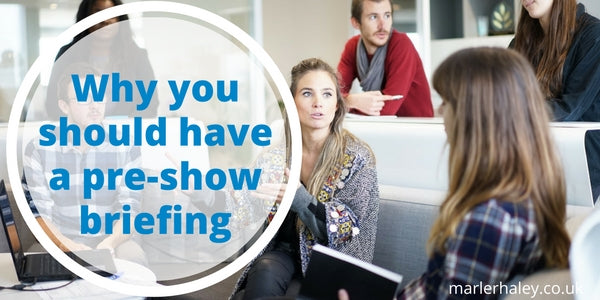0800 072 7742
0800 072 7742


If possible, give your team time to practise their sales pitch before the big day. Not many people work well under pressure, and they’ll be more relaxed if they are confident in the message that they are trying to communicate. Relaxed people are happy people, and happy people are definitely more approachable on a trade stand.
The more prepared you can help your sales team to be, the better their chances of success are. Knowing a little about the competition, and how your products or services differ from those elsewhere will help them communicate your USP with ease.
When briefing a sales team, make a note of the key points that are essential in any communication with potential clients, and make this the focus of your briefing.
Give your sales team too much information and you risk people forgetting parts and not communicating all that you wanted them to. Too little and they’ll feel under prepared and exposed.
If necessary, provide them with a copy of these key points so that they have them on hand at all times to remind themselves.
As tempting as it is to engage in a discussion on world peace, veering off-piste is it a distraction from the job at hand (generating sales or making important connections with potential customers) and can get sticky.
While no one wants to seem unfriendly, it is worth reminding your sales team that when representing your organisation at an exhibition, staying on topic is often the best approach.
While no-one wants to look like they don’t know what they’re talking about in front of a customer, neither do you want to get back to the office and find out you’ve miss-sold a product or made promises that your organisation cannot keep.
Especially for the less experienced in your team, make sure your pre-show briefing includes clear instructions on how to handle potentially sticky situations and who to defer to for more information if they are unsure of how to answer an enquiry.
If you are selling at a show, and don’t want discounts offered with wild abandon, make sure your team is clear on who is authorised to offer deals, when and at what level.
And remember, assumption is the mother of all misunderstanding. Be as clear as possible with your team on what you expect them to say and sell, and they have the best chance of making the day a success for your business.